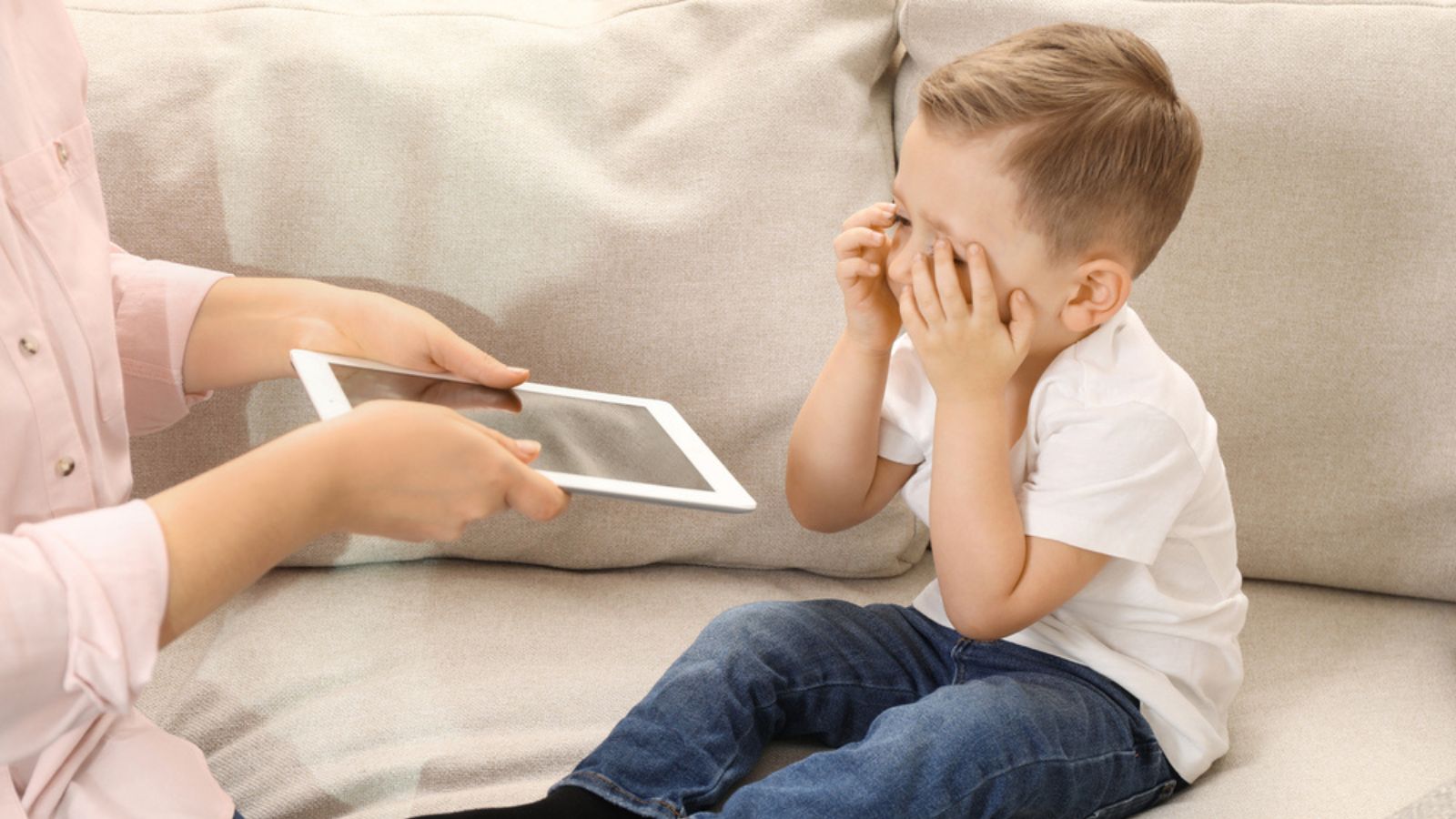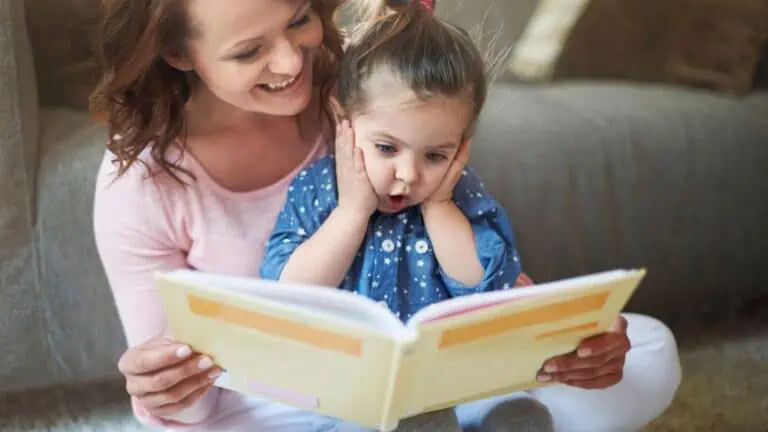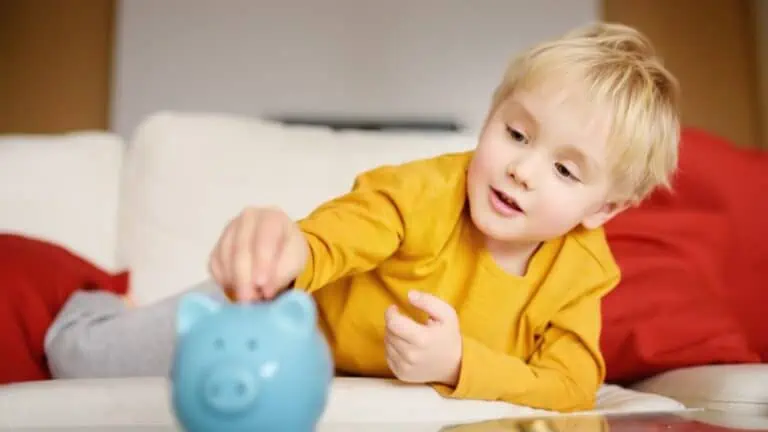12 Modern Parenting Trends That Are Hurting Rather Than Helping Our Kids
This post may contain affiliate links. As an Amazon Associate, I earn from qualifying purchases.
Most parents have their children’s best interests at heart, but unfortunately, the road to hurtful parenting is paved with good intentions. The very idea that parenting can hurt a child is painful to hear, but negative parenting is more common than we want to admit. This is when what a parent does impacts how a child grows up, sometimes even into adulthood.
Modern parenting has changed a lot because of new technology, society changes, and new ideas on raising kids. However, not all new parenting methods are good for kids’ growth. Many times, the parent doesn’t realize how much they’re harming the child.
In an eye-opening online discussion, several such trends (typically considered more “modern” in their approach) were highlighted. This article explores these parenting patterns and their potential drawbacks and offers insights for a more balanced approach.
1. Pacifying Them with Gadgets
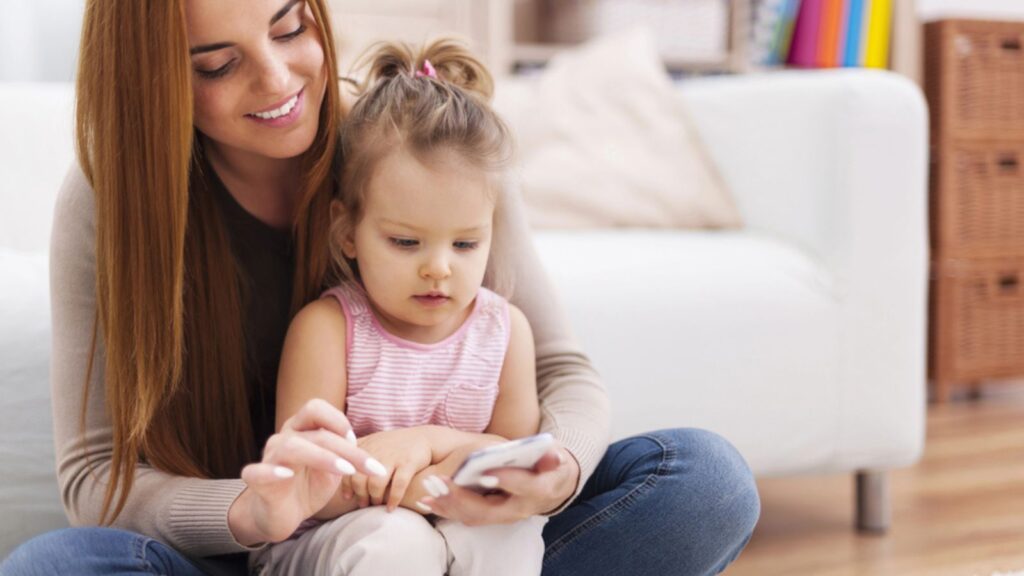
He who hasn’t handed a crying toddler a phone in exchange for a few minutes of peace can cast the first stone. The convenience of calming or distracting a child with a gadget is undeniable. The problem of gadgets soothing children is as old as smartphones, as experts show. Technology isn’t inherently detrimental; the overreliance and unsupervised access pose risks.
This approach hampers the development of self-soothing techniques and interpersonal skills. Excessive screen time has been linked to reduced physical activity, delayed speech development, and even issues with attention spans. Experts recommend setting boundaries, such as screen time limits and engaging in digital activities.
2. Permissiveness

Do you belong to the club that says children should never be told “No?” Some parents use a permissive style to help kids become independent and confident by setting few rules and giving them much freedom. Very Well Mind says this often leads to difficulties with authority and a lack of self-discipline.
Children in too-permissive homes might struggle to understand limits, which are important for getting along with others and growing up well. Setting clear rules and sticking to them helps kids learn to be responsible and teaches them why following rules matters. Instead, offer a combination of freedom and guidelines.
3. Helicopter Parenting
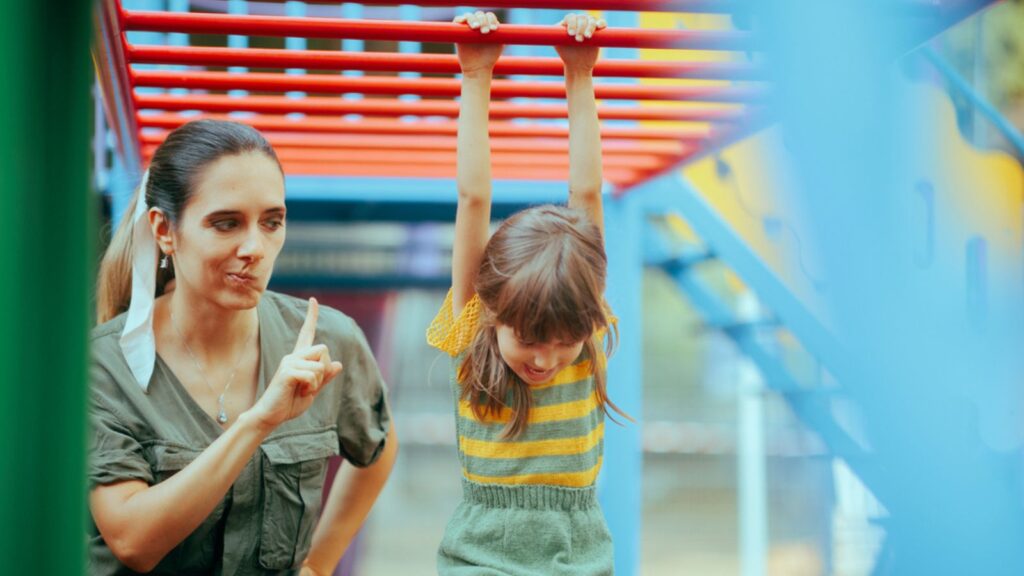
Are you a paranoid parent who’s always hovering over your children and intervening in their problems, aiming to protect them from failure, disappointment, or physical injuries? You’re a helicopter parent. Choosing Therapy suggests that this trend can stifle independence, hinder problem-solving skills, and increase anxiety. Children need the opportunity to face challenges and learn from mistakes to develop resilience and confidence.
Giving kids the freedom to try things independently helps them learn and deal with challenges. Parents should give more responsibility as kids grow and mature. This teaches them to be independent and flexible.
4. Forcing Kids into Sports
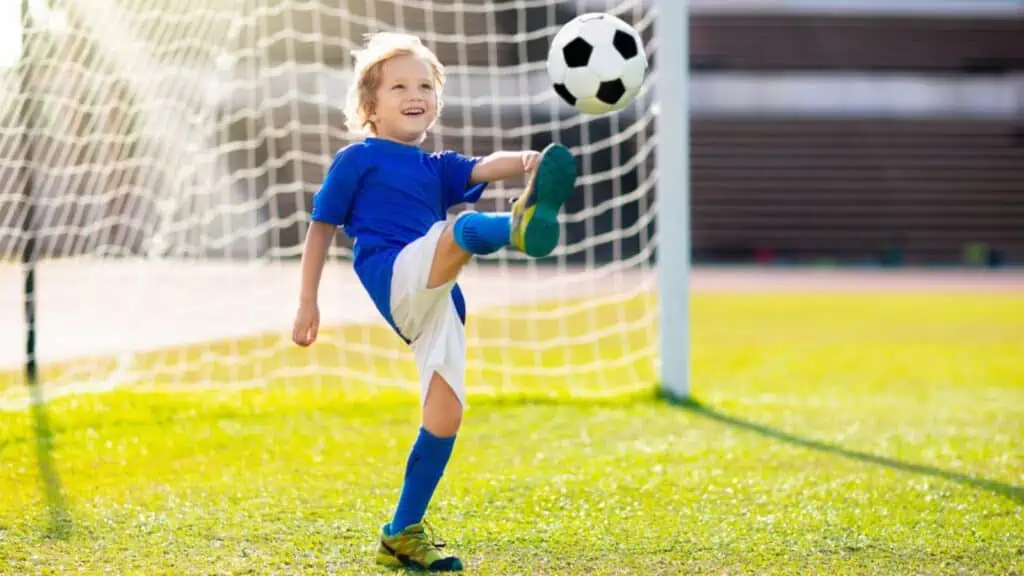
Are you the loudest parent at the sports arena who’s also forcing the child to participate in these events behind the scenes for whatever reason? Enrolling children in sports can promote physical health, teamwork, and discipline. Parents advise that pressuring them to participate against their will or to excel in a sport they don’t enjoy can lead to burnout and resentment.
Recognizing and supporting a child’s interests and talents is crucial, rather than imposing parental preferences. Offer your child a variety of activities and allow them to choose what they enjoy. This will encourage them to develop their passions and commitment.
5. Food Liberty
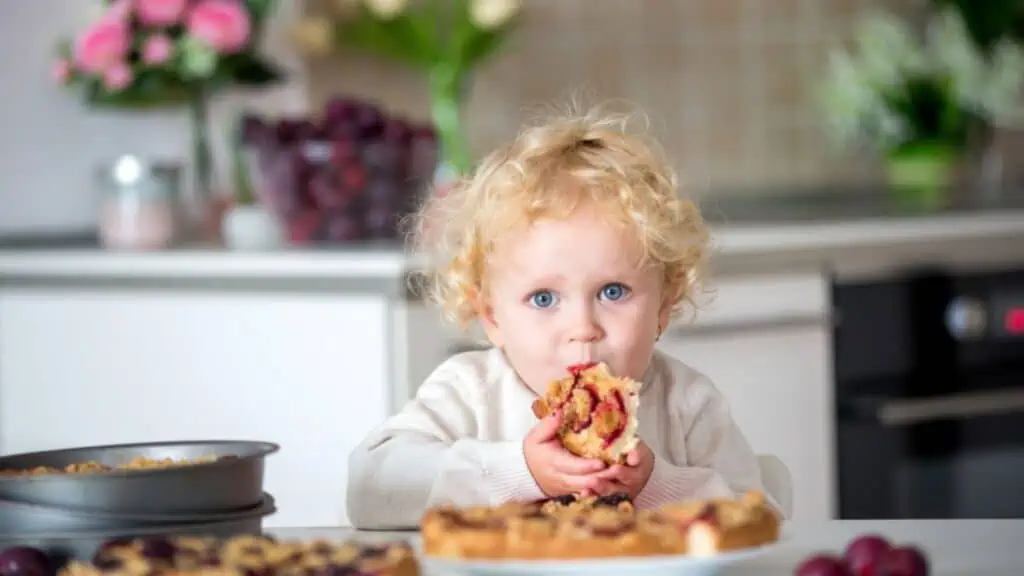
Most children will always look at broccoli the way we look at our tax return forms. However, giving children complete freedom to choose what and when to eat can lead to unbalanced diets and eating habits. Rushing to make your toddler a different meal every time they scowl at their food is not helpful. Encouraging independence in food choices is important, but guide them on the necessary to ensure nutritional needs are met.
Involving children in meal planning and preparation can teach them about nutrition and healthy eating habits while respecting their preferences and fostering autonomy. This balance between choice and guidance helps cultivate a positive relationship with food.
6. Not Teaching Basic Manners
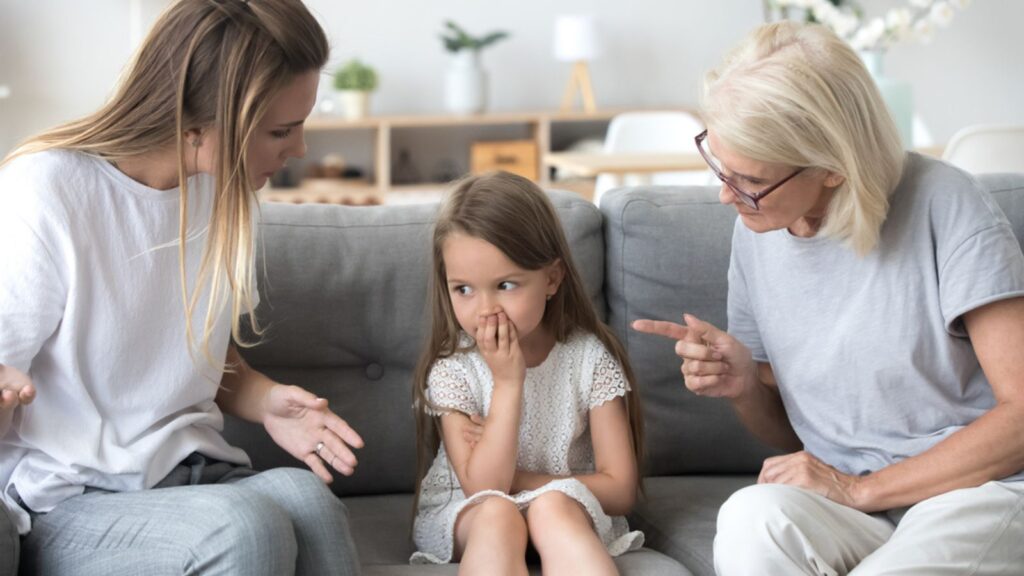
In the modern rush of daily life, some parents neglect to instill basic manners in their children, such as saying “please” and “thank you.” These fundamental social skills are essential for respectful and positive interactions throughout life. Poor manners affect a child’s attention span and learning interest.
Modeling these behaviors and reinforcing their importance in daily interactions can embed these values in children, helping them to develop into considerate and respectful adults.
7. Gentle Parenting

‘Gentle parenting” must be the snake oil of parenting. It emphasizes empathy and understanding, avoiding punishment in favor of positive reinforcement- all great in theory. While fostering emotional intelligence and secure attachment, experts say there’s a risk of being too lenient, leading to challenges with discipline and authority. Plus, it makes parents feel guilty when they fail at it.
Balance involves mixing kindness with strict, clear rules to encourage good behavior. Parents should set and enforce rules lovingly and consistently, giving children the structure they need. This approach combines gentle parenting with the advantages of traditional discipline.
8. Influencer Parenting

Influencer parenting, where parents model their approach after popular social media personalities, can disconnect family dynamics from reality. Research has shown that having children exposed too much to social media predisposes them to mental health issues later in life.
Using a real parenting style based on reliable advice (but adapted to each child and family) makes guidance useful and practical. This supports a child’s healthy growth.
9. Overexposure to Social Media
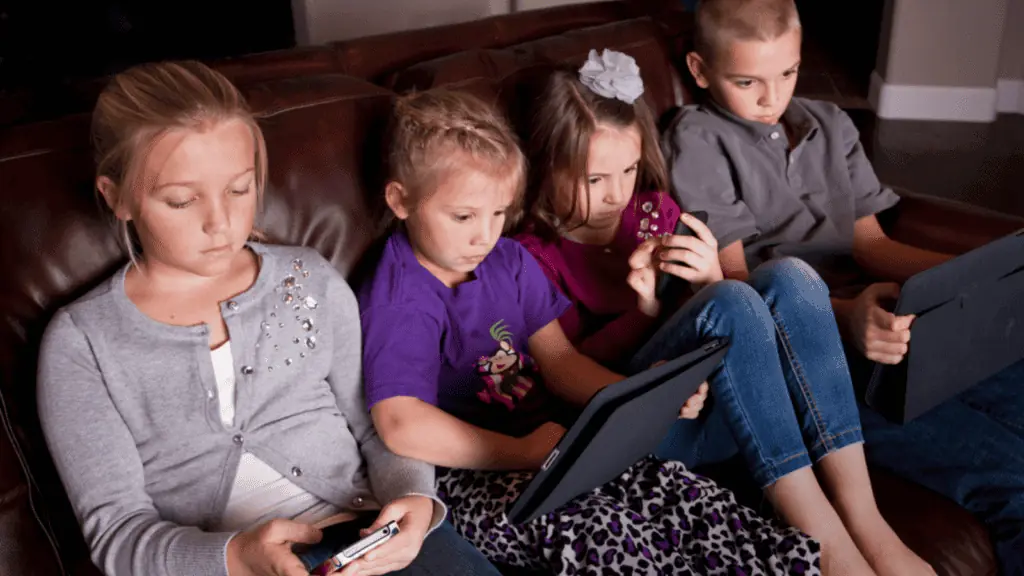
Allowing children unlimited access to social media exposes them to potential risks, including cyberbullying, inappropriate content, and unrealistic life comparisons. While children need to learn digital literacy, supervision and age-appropriate restrictions are necessary to protect their well-being.
Educating children on responsible social media use is crucial. Creating a transparent environment where they can discuss online experiences can protect them from the negatives of digital life.
10. Not Disciplining Kids

No discipline is pleasant; effective discipline teaches children about consequences and helps develop a sense of right and wrong. Refusal to discipline can lead to behavioral issues and a lack of respect for authority.
Applying consistent, fair discipline grounded in love and respect helps children learn boundaries and moral values, forming the foundation for responsible and empathetic adulthood.
11. Overscheduling Children

Parents may overschedule their time with multiple extracurricular activities in an effort to provide children with various opportunities for growth and development. While the intention is to enhance their skill set and academic prospects, this approach deprives children of essential free playtime and the chance to explore their interests at their own pace.
Balancing structured activities with ample downtime allows children to develop creativity, explore personal interests, and manage self-directed learning.
12. Not Touching Them
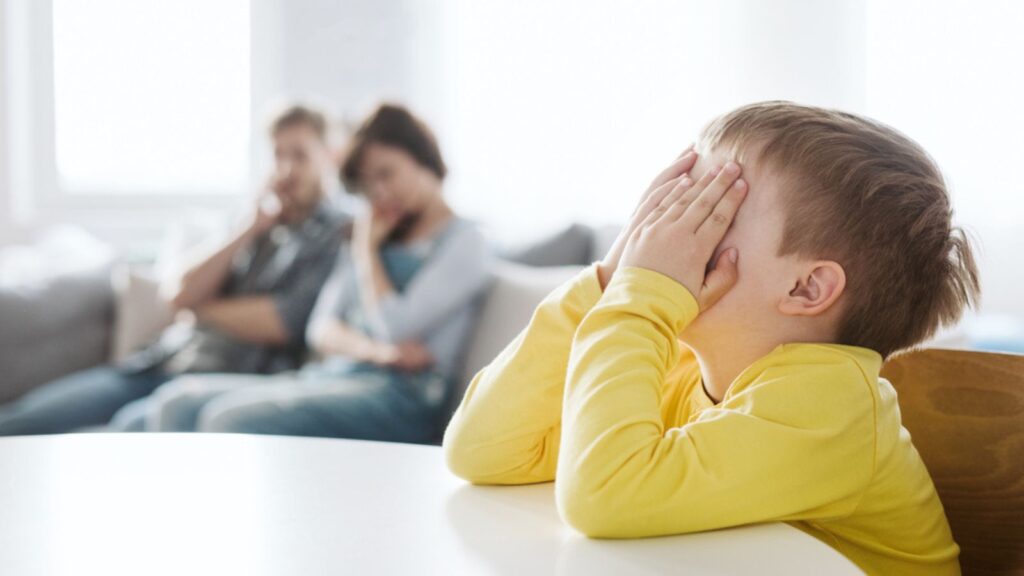
The significance of physical touch in parenting cannot be overstated. From a comforting hug to a reassuring pat on the back, physical expressions of love and support play a crucial role in a child’s emotional and physical development. Children who aren’t touched much may even have stunted growth.
Studies underscore the impact of affectionate touch on reducing stress, bolstering the immune system, and fostering secure attachment patterns. Ensuring that children feel physically nurtured within the boundaries of their comfort zones aids in cultivating a sense of safety, belonging, and self-worth as they grow.
20 Strong Words Parents Should Never Say to Their Kids

Countless adults sitting in a therapist’s office today are grappling with the lasting impact of words spoken by their parents during childhood. Regardless of how you perceive yourself, in your child’s eyes, you are nothing short of the most remarkable thing to happen to them since “skip intro.” This underscores the critical importance of being mindful of what you say to your children, as your words become the small but influential voice in their developing minds.
20 Strong Words Parents Should Never Say to Their Kids
16 Common Phrases Grandparents Should Stop Saying to Their Grandkids
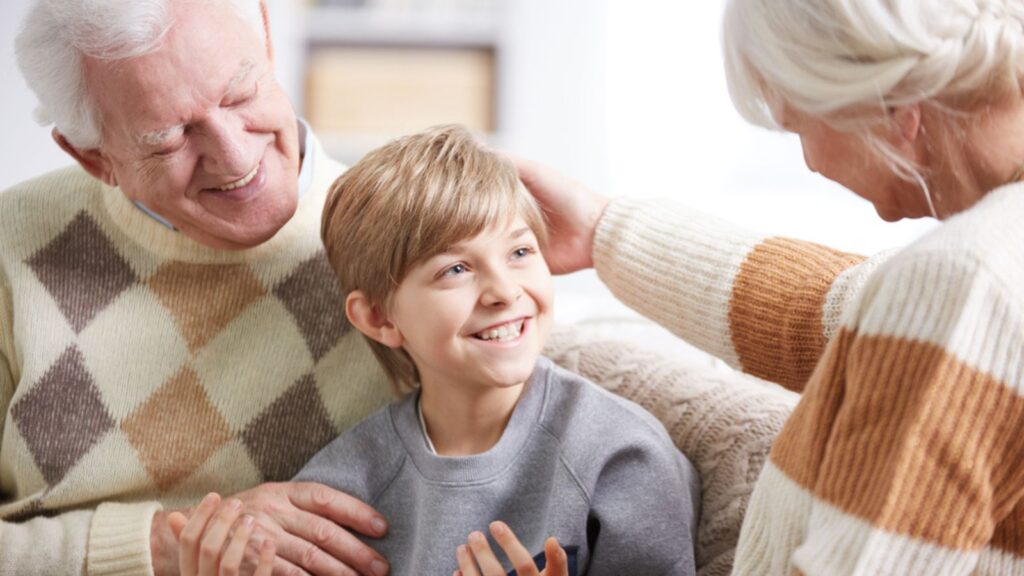
Do you still remember something your grandparents said that made you uncomfortable? As much as we adore our grandparents, their words (even with good intentions) can sometimes hurt our feelings or are plain embarrassing.
If you are a grandparent, using your words mindfully around your grandkids is as crucial as any other relationship. Words hold immense power and shape our kids’ behaviors and perceptions.
16 Common Phrases Grandparents Should Stop Saying to Their Grandkids

